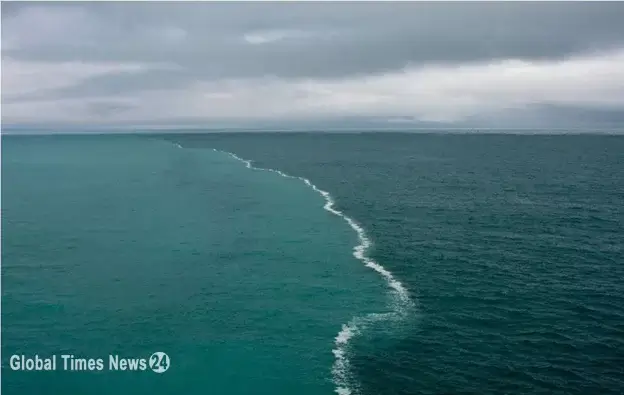China has officially condemned Japan's move to release treated radioactive water from the wrecked Fukushima nuclear power plant into the Pacific Ocean. The Chinese General Administration of Customs, in a statement released on Thursday, declared an immediate suspension of all imports of aquatic products originating from Japan. The decision follows Beijing's earlier warning that it would take action if Japan proceeded with the controversial discharge of the treated wastewater.
According to a report by the state-run broadcaster CGTN, China's Foreign Ministry expressed strong opposition and condemnation of Japan's actions. The ministry criticized Japan for not engaging in thorough consultations with relevant stakeholders before making its decision. The ministry's statement referred to Japan as a "saboteur of the ecological system and polluter of the global marine environment." China had previously urged Japan to halt its plans and labeled the discharge of nuclear-contaminated water as a significant nuclear safety issue that extends beyond Japan's borders.
Despite facing substantial criticism regarding potential harm to marine life, Japan carried out the water release as scheduled on Thursday, with the discharge commencing at 1 p.m. local time (0400GMT). The Fukushima nuclear power plant complex contained approximately 1.34 million tons of treated water.
China's opposition to the water release is grounded in concerns about nuclear safety and its potential global ramifications. The Chinese Foreign Ministry stressed that the issue of disposing of nuclear-contaminated water transcends Japan's national boundaries and affects the broader international community. Beijing argued that Japan's decision to release the water could result in a secondary man-made disaster for both local populations and the world at large.
Furthermore, China raised doubts about the legitimacy, legality, and long-term reliability of Japan's ocean discharge decision. The ministry questioned the credibility of the purification facility and the accuracy of the nuclear-contaminated water data provided by Japan. China contended that Japan had not adequately demonstrated that the ocean discharge would be safe for the marine environment and human health, and criticized Japan's monitoring plan as insufficient.
China's Foreign Ministry condemned Japan's choice to release the water as irresponsible and selfish, accusing Japan of spreading risks to the global community and future generations. The ministry asserted that Japan's actions infringed upon people's rights to health, development, and a healthy environment, thereby violating its moral responsibilities and international obligations.
In summary, China's criticism of Japan's decision to release radioactive water from the Fukushima nuclear power plant has escalated to the suspension of aquatic product imports from Japan. China's concerns primarily center around nuclear safety and the potential negative impact on the marine environment and global community.
News ID : 2414
 Consumer inflation in Canada drops to 3.4% in May
Bussiness / Breaking News
Consumer inflation in Canada drops to 3.4% in May
Bussiness / Breaking News
 Islamic bank's meeting sees signing of agreements worth $5.4B
Bussiness / Breaking News
Islamic bank's meeting sees signing of agreements worth $5.4B
Bussiness / Breaking News
 EU Initiates Actions Against Seven European Countries for High Debt Levels
Bussiness / Breaking News
EU Initiates Actions Against Seven European Countries for High Debt Levels
Bussiness / Breaking News
 7 Small Business Ideas That Every Town Needs
Bussiness
7 Small Business Ideas That Every Town Needs
Bussiness
 How Indian migration to foreign countries has changed from a brain drain to a brain gain
Bussiness / Breaking News
How Indian migration to foreign countries has changed from a brain drain to a brain gain
Bussiness / Breaking News
 What the US could learn from China's nuclear power expansion
Technology
What the US could learn from China's nuclear power expansion
Technology
 Investment in nuclear weapons exceeded $82 billion in 2022
Bussiness / Breaking News
Investment in nuclear weapons exceeded $82 billion in 2022
Bussiness / Breaking News
 Major sports events of 2022
Sport / Breaking News
Major sports events of 2022
Sport / Breaking News
 Why don't the Pacific and Atlantic Oceans mix?
World / Breaking News
Why don't the Pacific and Atlantic Oceans mix?
World / Breaking News
 1,100 civilians evacuated in Ukraine in last 24 hours
Human Rights
1,100 civilians evacuated in Ukraine in last 24 hours
Human Rights